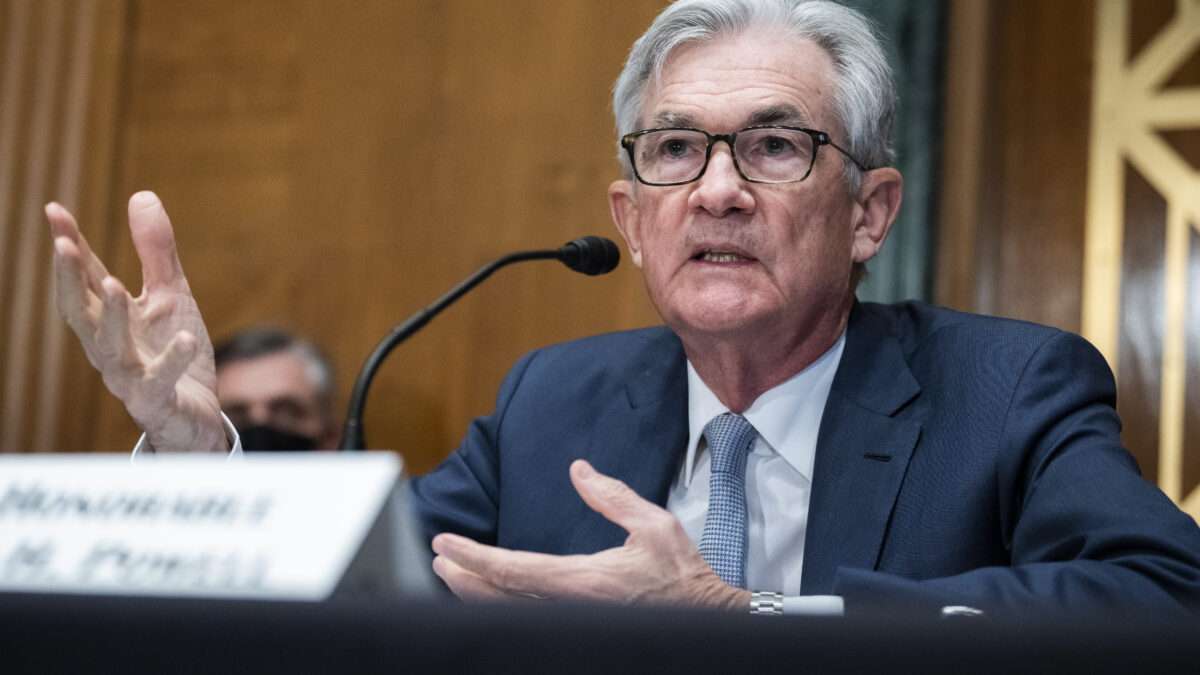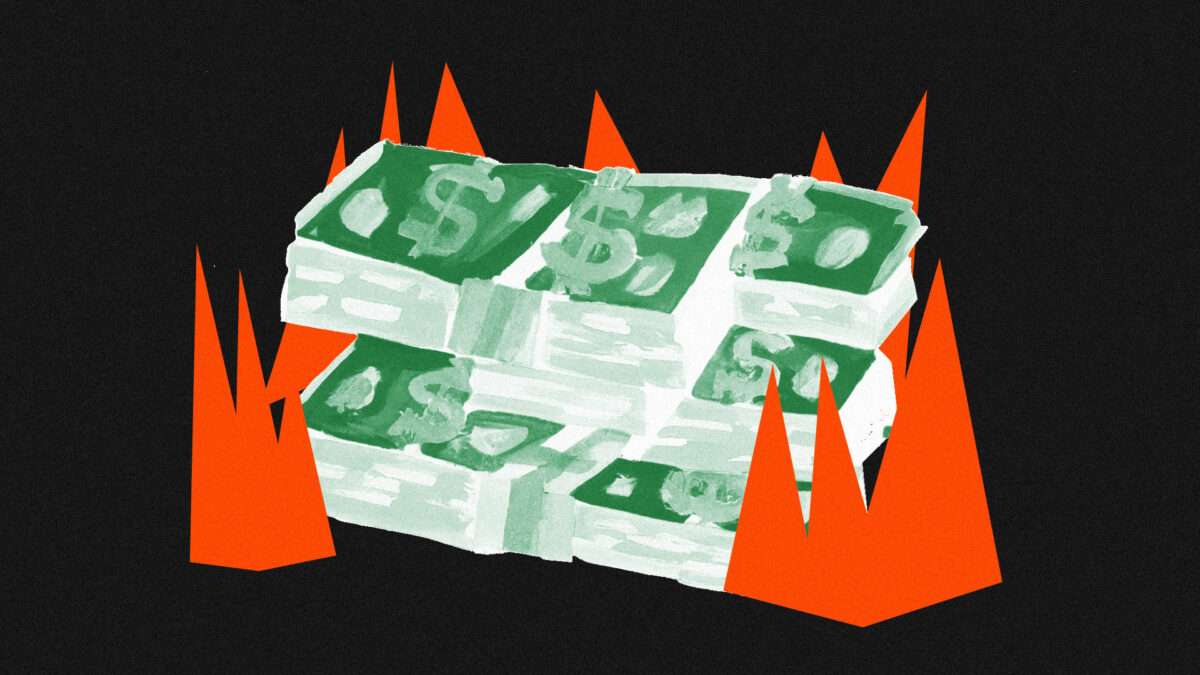Markets in Panic

The first domino: A bad U.S. economic outlook, reflected in Friday's jobs report, helped prompt major stock sell-offs globally over the weekend.
"Japanese stocks collapsed on Monday in their biggest single day rout since the 1987 Black Monday sell-offs," reports Reuters, with the Nikkei 225 index falling 12.4 percent and the Topix index falling 12.2 percent. The Kospi index in South Korea fell more than 10 percent. Equity markets felt the pain in Taiwan, Australia, Singapore, Hong Kong, and China, though to a lesser degree. "At one point, the plunge in Japanese and Korean stocks tripped a 'circuit breaker' mechanism that halts trading to allow markets to digest large fluctuations," reports The New York Times. "But even after those mandatory breathers, the sell-off in stocks seemed to accelerate. Jitters spread to the debt market, prompting a halt in trading in Japanese government bonds as well."
Wall Street's "fear gauge"—the VIX—jumped to its highest level since 2020, when the pandemic prompted a wild market fluctuation. "The market response is a reflection of the deteriorating U.S. economic outlook," Jesper Koll, a director at financial services firm Monex Group, told the Times. "It was a New York sneeze that forced Japanese pneumonia."
The U.S. jobs report, released Friday, found that hiring slowed significantly in July. Unemployment continued its slow creep upward—4.3 percent, the highest since October 2021—and wage growth eased a bit. The jobs report also revised the May and June numbers downward, by a combined 29,000 jobs, indicating that the July downshift did not come out of nowhere. It also "stoked fear of a coming recession" due to something known as the "Sahm Rule," named for economic Claudia Sahm, who identified in 2019 a useful recession indicator that our July jobs report has unfortunately met (more on that from Reason's Eric Boehm).
Inflation has showed plenty of signs of cooling a bit, responding to Federal Reserve rate hikes, but the jobs report means a rate cut "could be on the table" as soon as September, according to Fed Chair Jerome Powell.
In other words, the aspirational "soft landing"—a cooling down of inflation without triggering a recession—may not in fact be materializing. And these American warning signs are leading to global ripple effects.
Bloomberg's Joe Weisenthal has, I think, the smartest and most concise take on what's going on, for those who indulge:
10 THOUGHTS ON TODAY'S BIG MARKET SELOFF
In today's 5 Things newsletter, I jotted down a bunch of random stuff about this moment in stocks, crypto, FX, and macro.
Here they are
1) It was clear instantly on Wednesday that Powell was going to be offsides this market: pic.twitter.com/iJ6ipo7Grc
— Joe Weisenthal (@TheStalwart) August 5, 2024
Scenes from New York: Will Rudy Giuliani's real estate save him?
QUICK HITS
- The U.S. government believes Iran and Hezbollah will retaliate against Israel for the recent assassinations of Hamas leader Ismail Haniyeh in Tehran and Hezbollah leader Fuad Shukr in Beirut.
- Per tabloid reporting, which was partially confirmed by the campaign, Kamala Harris' husband, Doug Emhoff, had an affair during his first marriage (not to Harris). The woman he had an affair with allegedly became pregnant and did not keep the baby, though the campaign has not acknowledged or confirmed that part.
- "Belgium's Olympic committee announced Sunday that it would withdraw its team from the mixed relay triathlon at the Paris Olympics after one of its competitors who swam in the Seine River fell ill," reports the Associated Press. "After a spring with an abnormal amount of rainfall, tests of the river's water found that the levels of E. coli bacteria were more than 20 times higher than what World Triathlon considers acceptable," wrote Reason's Natalie Dowzicky last week. "But the mayor of Paris, Anne Hidalgo, still jumped into the Seine earlier this month in an effort to instill confidence that the waterway was just fine. But a small dip is very different from submerging yourself for hours of racing."
This is the most French possible thing that could have happened when Paris hosted the Olympics:
Running with a really stupid idea because it sounds cool, then somehow ending up fucking over the Belgians. https://t.co/K6Id4CUVV5
— Tom (@Lawmadillo) August 5, 2024
- Fun fact:
Nirvana's Nevermind was released 12,000 days ago. Its release date is closer chronologically to Fidel Castro taking control of Cuba than to today.
— Dan Szymborski (@DSzymborski) August 1, 2024
The post Markets in Panic appeared first on Reason.com.



